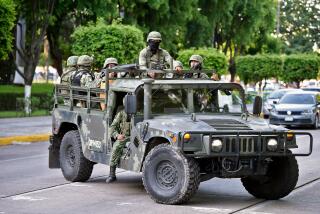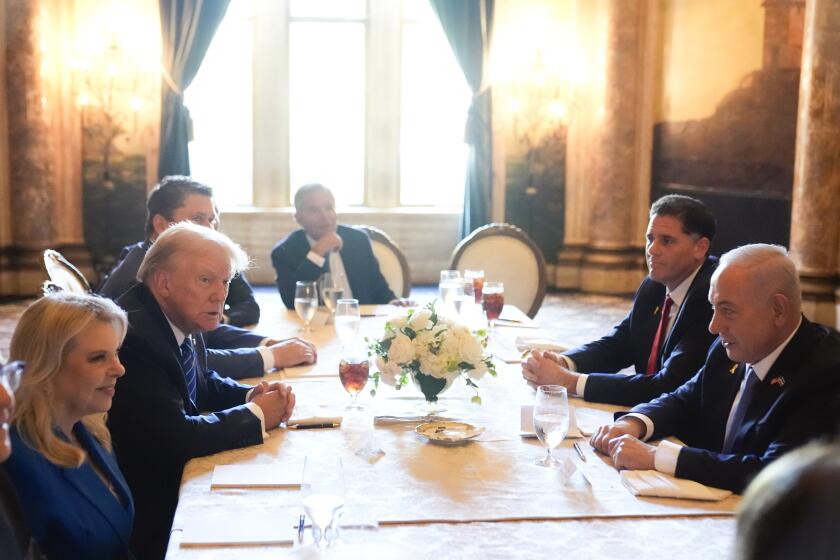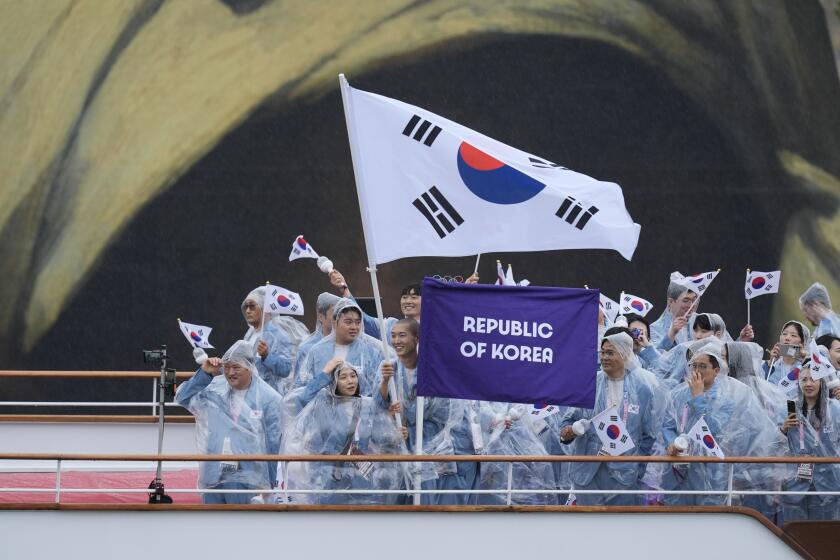The Real Lesson of the Rockwood Case : U.S. military interventions will require special human rights training
The court-martial of Army Capt. Lawrence Rockwood has produced the expectable conviction. The 15-year veteran was found guilty on a number of charges, including being absent without permission, all related to his service as an intelligence officer in Haiti during last year’s U.S. intervention. Under military rules Rockwood was clearly derelict. But the circumstances of his misbehavior raise troubling and far-reaching questions--and no small amount of sympathy, too, for him.
There’s little reason to doubt Rockwood’s story that he acted out of conscience and out of frustration prompted by the unconscionably low priority his superiors had assigned to dealing with tangible human rights abuses in Haiti. That failure by higher authority was clearly antithetical to the reasons given by the United States for its military move into Haiti.
The facts of the case can be simply stated. On Sept. 30, 1994, on his own initiative, Rockwood left the compound where he was stationed and hitched a ride to the National Penitentiary in Port-au-Prince. At the time Raul Cedras, the military dictator, was still in at least nominal charge of the country. Rockwood’s purpose was to observe conditions in the light of reports about torture, summary executions and generally appalling conditions in the prison, an issue he had earlier and apparently fruitlessly raised with his superior officers. For his unsanctioned excursion, Rockwood was charged and tried. He now faces dismissal from the Army.
Rockwood knowingly violated orders, and a penalty must be paid. But that he did so for humane and necessary reasons must also be considered. The Haiti intervention was an effort to impose the rule of law on a country that has seldom been governed by it. One of its first priorities surely should have been to remedy the hideous human rights abuses in Haiti’s prisons. Indeed, to let those abuses go on when U.S. forces were in a position to stop them mocked the aims of the intervention. If the Rockwood case now forces the military--and its civilian bosses--to better prepare for dealing with human rights abuses in future interventions it will have served a valuable purpose.
More to Read
Sign up for Essential California
The most important California stories and recommendations in your inbox every morning.
You may occasionally receive promotional content from the Los Angeles Times.






